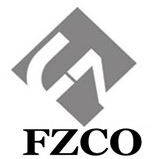New EU VAT rules to cost small businesses £180m in extra red tape
Thousands of small ecommerce exporters are facing further headaches with the introduction on July 1 2021. New EU VAT rules that will cost at least £6,900 a year each. Which is roughly £180m in total.
The rules have been introduced to tackle an estimated €7 billion a year in VAT fraud by importers based in non-EU countries. The new rules also affect UK companies following the UK’s departure from the EU.
Changes to EU VAT for cross-border e-commerce
The EU will introduce significant changes to how Value Added Tax (VAT) is collected on:
- Confirm which areas of your business are impact in the new EU VAT rules.
- Assess your VAT accounting needs for the EU Systems. Master data updates are require to identify and apply the appropriate VAT rates in different countries.
- Consider registering for the IOSS platform. If you want to use a single registration to pay VAT throughout the EU for B2C shipments up to € 150.
- If you do not have an EU-based establishment and you want to register for IOSS. You may need to appoint an intermediary to ensure tax compliance on your behalf in the EU.
- Review and cancel existing foreign EU VAT registrations. If you want to replace these with a single IOSS registration.
- If you sell through an online marketplace. Contact them to confirm who is responsible for VAT accounts for your B2C shipments up to €150.
- make any necessary updates to your shipping system and procedures.
- If you plan to pass on import charges to your consignee. Make sure you inform them of this in advance.
What sellers have to do
- Amazon and eBay ask that all sellers provide a gross price and separate VAT rate on their listings. So that Amazon and eBay can determine the correct amount of VAT to collect from consumers based on their location.
- Separate from Amazon and eBay obligations. EU sellers with an annual turnover of more than €10,000. Their complete intra EU cross-border supplies will have to charge the VAT of the EU country of delivery.
- EU VAT cross-border trade sellers should assess the impact on their business and prepare for the changes.
Under EU VAT rules apply from 1 July 2021. No import VAT had to be paid for commercial goods of a value up to €22. The new VAT e-commerce rules abolish this provision from 1 July 2021 and since that date. All commercial goods import into the EU from the UK, are subject to VAT irrespective of their value. Registration with the IOSS may simplify the VAT position.
What can we do if this affects your business?
The Import One-Stop Shop (IOSS) allows suppliers and electronic interfaces . seller import goods to buyers in the EU to collect, declare and pay the VAT to the tax authorities. It is not making the buyer pay the VAT at the moment the goods are import into the EU.
Thus, IOSS registration is not strictly necessary, but it allows the seller to simplify the process. So that the purchaser does not have to worry about import VAT. It means the buyers know the VAT inclusive purchase price up front, rather than receiving a VAT ‘surprise’ upon receipt.
How can I register for the OSS?
Each EU Member State has an online OSS portal, where businesses can register from 1 April 2021 and can use it for transactions made on or after 1 July 2021.
This single registration will be valid for all eligible supplies made by online sellers (including electronic interfaces).



